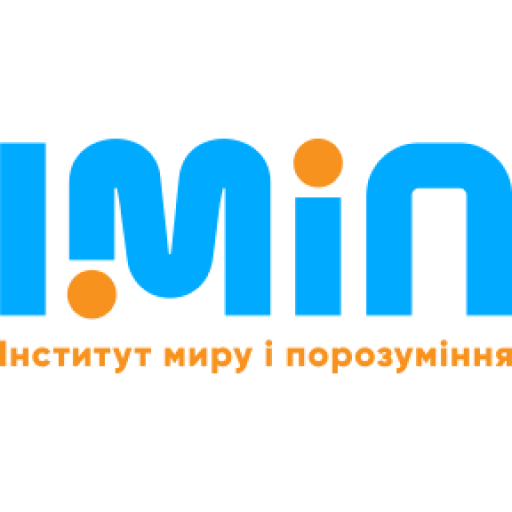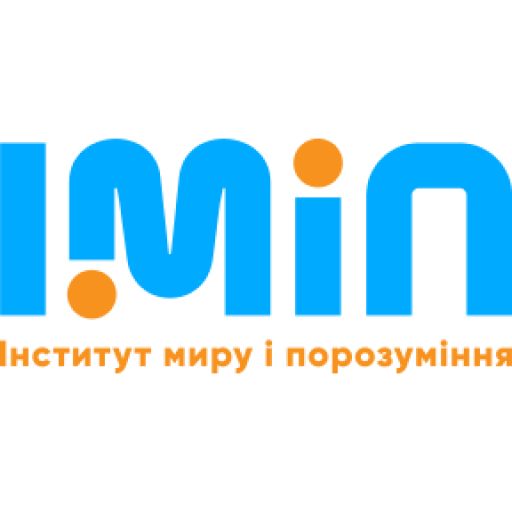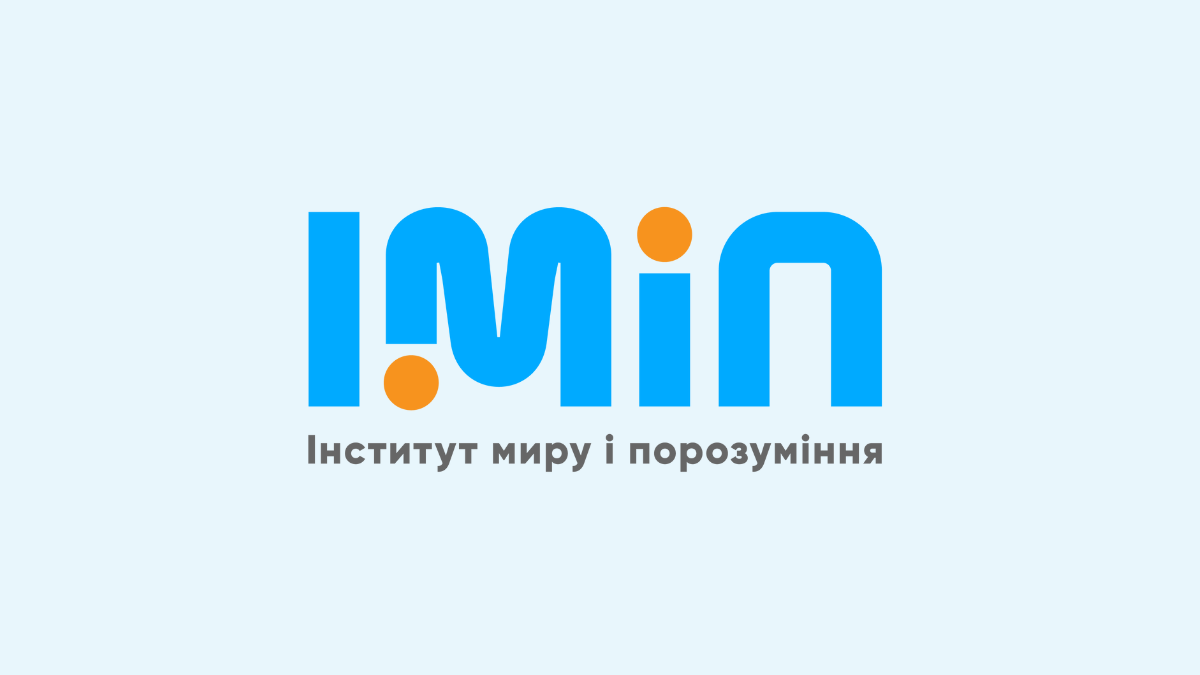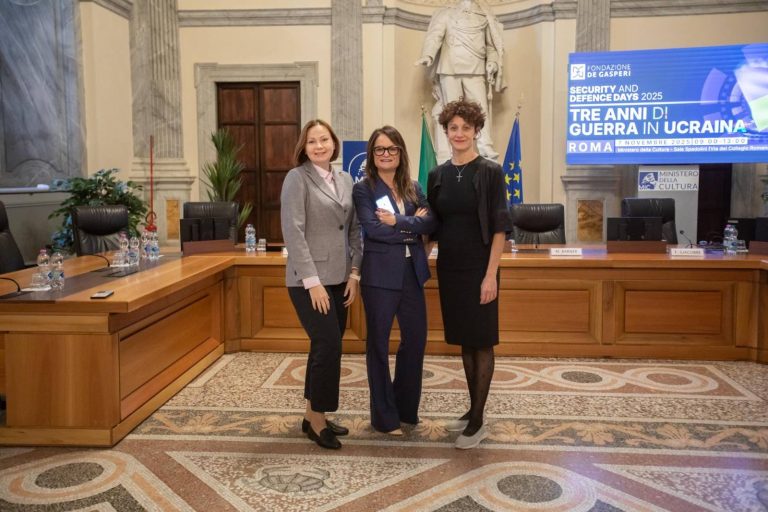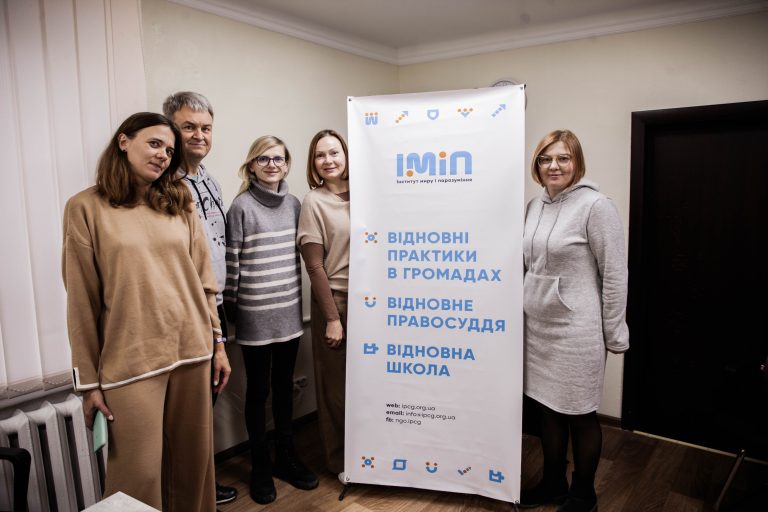This call is proposed by representatives of Ukrainian think tanks that deal with international security, mediation and conflict resolution. The aim of the call is to draw global attention to Ukraine’s Peace Formula as the most comprehensive blueprint which has potential to lead to sustainable, just and stable peace.
On 15-16 June, Switzerland will host the first Global Peace Summit. It is organised by Switzerland at the request of Ukraine. The Summit aims to initiate a peace process with global multilateral engagement that will result in a just and sustainable peace for Ukraine. To achieve this goal the High-Level Political Platform for the implementation of Ukraine’s Peace Formula will be launched at the Summit.
This peace initiative was first presented by the President of Ukraine, Volodymyr Zelenskyy, at the G20 Summit in November 2022. The Formula offers responses to both new and long-standing challenges posed by Russian aggression in Ukraine that have global implications. Ten points of the Formula cover political, security, and humanitarian dimensions of a possible peace solution.
The Peace Formula aims to offer global solutions for upholding and enforcing the principles of international law for the benefit of the entire world community – especially for the countries facing the consequences of armed or man-made disasters on their territory. The inaugural Summit in June 2024 will cover issues of nuclear and energy security, food security, freedom of navigation, as well as matters concerning POW exchanges and the repatriation of civilians and children unlawfully taken from Ukraine.
Ukraine’s experiences with Russia’s violation of previous peace agreements and unsuccessful attempts of bilateral negotiations with Russia make it an imperative for Ukraine to seek global multilateral engagement for achieving a joint sustainable solution to the conflict, as opposed to bilateral negotiations, even with the participation of the most respectful mediators.
Temporary ceasefires and new lines of disengagement will not solve the problem of continued aggression as long as Russian troops remain on Ukrainian territory. That is why all proposals to freeze the conflict, which are present in other peace initiatives, should be rejected as impractical and short-sighted. Therefore, the June Summit aims to establish a collective platform for discussions and cooperation on finding a practical and systemic conflict resolution.
First, the Peace Formula’s points align with the norms and principles outlined in the United Nations General Assembly Resolution ES-11/6 “Principles of the Charter of the United Nations for achieving a comprehensive, just and lasting peace in Ukraine”, adopted by 141 UN member-states. Alternative peace initiatives operate with Cold War concepts and terminology, as well as unjustified zones of influence and quasi-imperialist ‘legitimate security concerns’ that do not reflect the modern principles of international law and relations.
Second, time is the most valuable resource. Active work on the content of Ukraine’s Peace Formula has started a year ago, in early 2023. This involved defining the thematic scope of each of the ten points, launching ten international working groups, identifying co-chairing countries or organizations, and preparing action plans for each. Several meetings were held at the level of world leaders’ national security and political advisers. The Davos NSA meeting in January 2024 essentially concluded the technical preparatory work, paving the way for the first Global Peace Summit- a high-level discussion platform to politically launch the proposals developed by the working groups, at the ambassador-level meetings, and at the national security advisors’ sessions.
Third, while alternative peace proposals are based on the ownership of one or several international actors, Ukraine’s Peace Formula offers the space for the active involvement of dozens of foreign countries in the various thematic priorities. For example, over 80 participants were present at the Davos meeting of political and security advisors. Now it is time to launch the highest-political level of this peace process with the widest possible participation of representatives of the world community to develop a common vision.
Fourth, there are currently no preconditions in place for initiating peace talks between Ukraine and the Russian Federation, as the Kremlin intends to continue its unprovoked war of aggression against Ukraine. However, to end the largest international armed conflict in Europe since World War II, substantive and procedural solutions must be prepared for when Russia is ready to negotiate. The philosophy of the Peace Formula envisions this possibility during the second Global Peace Summit.
Fifth, the summit is a historic landmark that can prepare the substantive and procedural conditions for the peace process but also restore respect for the system of international law. As the aggressor, Russia understands the importance of this step and is doing its best to disrupt the Summit and reduce its political weight, as well as decrease international participation in the event. In addition to attempts to influence individual leaders of the so-called Global South, the Kremlin also tries to involve global international actors in its plans. We have noticed recent statements about the desire to hold alternative peace talks, which started to emerge during the preparation for the Summit. It is crucial for the international community to ignore those disruptive steps and to actively support and participate in the Summit.
Today, it is clear that Russia is unwilling to negotiate in good faith. This is partly due to the lack of effective international mechanisms to pressure Russia into peace. Recent political experience has led the Russian leadership to believe that their illegal actions would not face real opposition from other UN member-states. Therefore, the international community must find the strength to force the Russian Federation to comply with the UN’s demands – in particular, the demands enshrined in the UN resolutions to immediately stop aggression and hostilities and withdraw its troops from the entire territory of Ukraine.
Thus, the best diplomatic way to end the war is for the international community to put concerted pressure on Russia to restore the principles of international law as the basis for international relations. Smaller countries should be primarily interested in this.
Also, countries that claim regional leadership and want to have a powerful voice in international global politics should demonstrate their active position in support of international law. Any country that considers itself a player in international politics should be involved in diplomacy to stop Russian aggression against Ukraine.
Taking the above into consideration, we, representatives of think tanks and the global expert community,
recognize that the Peace Formula is the only systemic proposal that is based on the vision of a comprehensive, just, and lasting peace in line with the UN Charter and the interests of the victim state exercising legitimate right for self-defense against illegal aggression. At the same time, it offers ideas on mechanisms to prevent and diminish harm caused by other large-scale wars and international armed conflicts.
call on heads of states and governments to:
- Participate at the highest level in the Peace Summit to demonstrate your state’s commitment to the UN Charter, the principles of sovereignty, independence and territorial integrity of states within their internationally recognised borders;
- Actively engage in discussions on the issues of nuclear safety, food security, and freedom of navigation, as well as urgent humanitarian issues, in order to find practical solutions to the global impacts, regional threats, and negative precedents posed by Russian aggression in Ukraine.
- Be ready to participate in the elaboration of other thematic points of the Peace Formula, including restoration of Ukraine’s territorial integrity; withdrawal of Russian troops and cessation of hostilities; restoration of justice; environmental safety; and preventing escalation and repetition of aggression.
- Avoid being trapped in malicious attempts by Russia or other international actors, like China, to sow geopolitical and other divisions in the world, and confirm the unity of peace-loving UN members based on the principles of international law.
Signatories (to be updated)
- Aliona Kopina,Laboratory of Peaceful Solutions, Ukraine
- Alona Horova, Institute for Peaceful and Common Ground, Ukraine
- Alya Shandra, Euromaidan Press, Ukraine
- Amanda Paul, European Policy Centre, Belgium
- Ana Khurtsidze, Gnomon Wise, Georgia
- Angelica Vasquez Zarate, Cadiz University, Spain
- Anna Makhlay, The John Smith Trust, United Kingdom
- Antonio Gil Fons, Universidad de Guadalajara, México
- Balkan Devlen, Macdonald Laurier Institute, Canada
- Bohdana Bodnar, Lawyer, Ukraine
- Carmen Claudin, Associate senior fellow CIDOB Barcelona, Spain
- Cesáreo Rodríguez-Aguilera de Prat, Emeritus professor of Political Science University of Barcelona, Spain
- Daniel Bartha, Centre for Euro-Atlantic Integration and Democracy, Hungary
- Danilo Elia, Journalist,Italy
- Daria Synhaievska, UkraineWorld, Ukraine
- Dmytro Shulga, International Renaissance Foundation, Ukraine
- Dmytro Zolotukhin, National University Kyiv-Mohyla Academy lecturer, head of the “Institute for postinformation society”, Ukraine
- Domingo Antonio Lilón, University of Pécs, Hungary
- Eunice Ostrensky, University of São Paulo, Brazil
- Franklim Colletti, Universidad Gabriela Mistral, Chile
- Ganna Valiensa, Facilitation Park, UCoDP, Ukraine
- Graeme Robertson, UNC at Chapel Hill, USA
- Hanna Shelest, UA: Ukraine Analytica, Ukraine
- Harry Nedelcu, Rasmussen Global, Belgium
- Hennadii Nadolenko, Diplomatic Academy of Ukraine, Ukraine
- Hennadiy Maksak, Foreign Policy Council “Ukrainian Prism”, Ukraine
- Henry Hale, George Washington University, USA
- Iryna Solonenko, Center for Liberal Modernity, Germany
- Iulian Groza, Institute for European Policies and Reforms, Moldova
- Ivan Kulchytskyy, NGO Agency of European Innovations, Ukraine
- Iwona Reichardt, Jan Nowak-Jeziorański College of Eastern Europe, Poland
- Jade McGlynn, King’s College London, United Kingdom
- Jakub Janda, European Values Center for Security Policy, Czech Republic
- James Sherr OBE, Honorary Fellow, Int’l Centre for Defence & Security, Estonia
- Jonathan Littell, Writer & filmmaker, USA
- Julia Kazdobina, Ukrainian Foundation for Security Studies, Ukraine
- Kataryna Wolczuk, College of Europe (Natolin), Poland
- Kateryna Narovska, National Association of Mediators of Ukraine, Ukraine
- Kristina Hook, Assistant Professor of Conflict Management, Kennesaw State University, USA
- Ljudmyla Melnyk, Institut für Europäische Politik, Germany
- Lucan Way, University of Toronto, Canada
- Łukasz Adamski, Mieroszewski Centre, Poland
- Mikhail Alexseev, San Diego State University, USA
- Maksym Skrypchenko, Transatlantic Dialogue Center, Ukraine
- Maksym Yakovlyev, School for Policy Analysis at NaUKMA, Ukraine
- Malcolm Davis, Australian Strategic Policy Institute, Australia
- Manuel Raposo, Independent expert, Portugal
- Mariya Y Omelicheva, National Defense University, USA
- Marzac Elena, PLATFORM FOR SECURITY AND DEFENCE INITIATIVES, Belgium
- Matthew Evangelista, Cornell University, USA
- Michal Matlak, Central European University, Belgium
- Mikhail Filippov, Professor of Political Science, Binghamton University (SUNY), USA
- Mykhailo Gonchar, Center for Global Studies “Strategy XXI”, Chief Editor of the Black Sea Security Journal, Ukraine
- Mykhailo Samus, New Geopolitics Research Network, Ukraine
- Natalia Bezkhlibna, Ukrainian Community of Dialogue Practitioners, Ukraine
- Nataliia Mudrak, mediator, dialogue facilitator, member of the National Association of Mediators of Ukraine, Ukraine
- Nataliya Gumenyuk, Public Interest Journalism Lab, Ukraine
- Olaf Saxegaard, HR and Management consultancy, Norway
- Oleh Ovcharenko, Ukrainian Community of Dialogue Practitioners, Ukraine
- Oleh Saakian, National platform for resilience and social cohesion, Ukraine
- Oleksandr Mitkov, Community of dialogue practitioners, Ukraine
- Oleksandr Slyvchuk, Transatlantic Dialogue Centre, Ukraine
- Oleksandra Karakuts, Civil Organization “Centre for International Security”, Ukraine
- Oleksandra Keudel, Kyiv School of Economics,Ukraine
- Oleksandra Matviichuk, Center for Civil Liberties,Ukraine
- Oleksiy Melnyk, Razumkov Centre, Ukraine
- Оlena Sapozhkova, National Association of Mediators of Ukraine, Ukraine
- Olexiy Haran,National University of Kyiv Mohyla Academy; Research Director, Democratic Initiatives Foundation, Ukraine
- Olga Tokariuk,Chatham House Academy Fellow, Ukraine
- Olha Vorozhbyt, The Ukrainian Week, Foreign Policy Council “Ukrainian Prism”, Ukraine
- Omar Osacr Ashour, Doha Institute for Graduate Studies (Qatar), University of Exeter (UK), Democratic Initiatives Foundation (Ukraine)
- Paul Niland, Lifeline Ukraine, Ukraine
- Pavel Baev, Peace Research Institute Oslo, Norway
- Pavlo Kozeletskyi, Ukrainian Community of Dialogue Practitioners, Ukraine
- Pere Vilanova, University of Barcelona, Spain
- Philippe De Lara, Panthéon-Assas university, France
- Plinio Junqueira Smith, Unifesp, Brazil
- Ralf Fuecks, Center for Liberal Modernity, Germany
- Rebecca Harms, Former Member of the European Parliament, Germany
- Remzi Lani, Albanian Media Institute, Albania
- Robert Orttung, George Washington University, USA
- Ryhor Nizhnikau, Finnish Institute of International Affairs, Finland
- Sergej Sumlenny, European Resilience Initiative Center, Germany
- Sergiy Solodkyy, New Europe Center, Ukraine
- Stepan Yakymiak, Military expert, Ukraine
- Steven Blockmans, CEPS, Belgium/ ICDS, Estonia
- Svitlana Petrova, Centre for Law and Mediation , GISMAECR, Ukraine
- Tetiana Kalenychenko, European Center for Strategic Analytics, Ukraine
- Tetiana Kyselova, National University of Kyiv-Mohyla Academy, Ukraine
- Tetiana Pechonchyk, Human Rights Centre ZMINA, Ukraine
- Tomas Strazay, Slovak Foreign Policy Association, Slovakia
- Tomila Lankina, Professor, LSE, United Kingdom
- Valerie Sperling, Clark University, USA
- Vicente Ferraro, Getulio Vargas Foundation (FGV), Brazil
- Victor Liakh, East Europe Foundation, Ukraine
- Viktor Kevliuk, Center for Defense Strategies, Ukraine
- Volodymyr Lakomov, The Ilko Kucheriv Democratic Initiatives Fund, Ukraine
- Volodymyr Yermolenko, Chief editor of UkraineWorld.org, Ukraine
- Wojciech Konończuk, Centre for Eastern Studies (OSW), Poland
- Wojciech Przybylski, Visegrad Insight – Res Publica Foundation, Poland
- Yoko HIROSE, Keio University, Japan
- Yuliia Kurnyshova, University of Soderton, Sweden
- Žiga Faktor, EUROPEUM Institute for European Policy, Czech Republic
- Žilvinas Švedkauskas, OSMOS Global Partnerships, Lithuania
